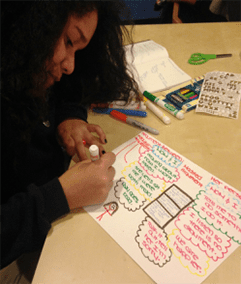–Shravya Reddy, Presidency School, Nizamabad, India
ABOUT US
Every Kid Deserves the Tools to Succeed
LEADERSHIP DEVELOPMENT CURRICULUM
The Hope Collaborative curriculum was developed by Hope Collaborative’s founders. Our program and evaluation consultant is the Massachusetts General Hospital Clay Center for Young Healthy Minds. Our 4-year 12-module leadership curriculum is a cornerstone asset implemented in collaboration with the Clay Center at Massachusetts General Hospital and based on best leadership development practices from Harvard, Stanford, Yale, Wharton, and other leading institutions. The Clay Center provides critical input into our development programming to ensure our curriculum and delivery is grounded in relevant research, undergirded by effective evaluations and results tracking, and respects the behavioral and emotional state of the students we serve.
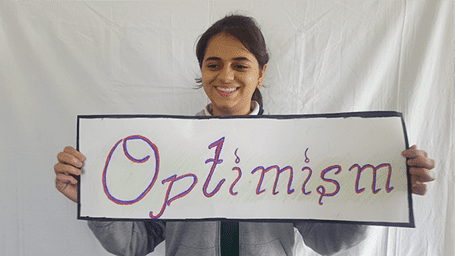
Our 4-year 12-module leadership program is a cornerstone asset based on best leadership development practices and delivery methods from leading universities and youth development institutions. We employ a rigorous and multi-faceted approach to ensure we have consistent, ongoing assessment and evaluation of the Leadership Development program. Each module originates in a set of learning goals created from leading study in social-emotional health topics, tracking to concrete skills that students can develop and practice during the program. Our learning modules include Conflict Resolution, Self-Awareness, Relationship Skills, Team Building, Empathy and Emotional Intelligence, Mindfulness and Focus, Trust and Values, Good Decision Making, Overcoming Obstacles, Self-Management, Building Self-Esteem, and Developing a Strong Identity.
Each module spans 12 weeks of programming, creating a 4-year positive youth development arc that runs 3 modules per year, infused with youth-centric storytelling, art, and creative media that support auditory, visual and kinesthetic learners while providing a fun and highly involved level of engagement. A key component is the creation of educational media (such as posters and videos) by students themselves, to then share with their communities and establish a growing resource library.
RESEARCH DRIVES OUR FUTURE
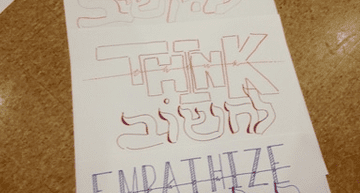
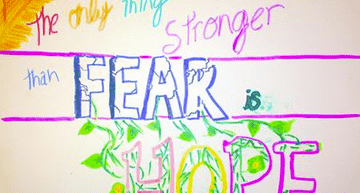
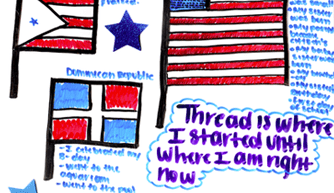
Research in key areas of life-skill building such as social emotional skills and resilience suggest that young people who focus on these developmental areas improve performance markedly in school and in their social lives. Even where low-income youth and families struggle, skills can be developed by some members to counter the deficits. Our program aims to help identify such strengths and promote them among the participants you work with. New research also credits success among disadvantaged young people who develop resilience. Previously, economic status trumped even IQ as an indicator of student achievement. Young people who failed and then learned how to rebound are shown to do better than their counterparts who may be ‘smarter’ and ‘better off’ but who have not learned the same resilience.
The Hope Collaborative digital gateway represents an online resource where partners can access a network of continually growing and developing best practices, and find all they need at one centralized online site. Partners gain access to the curriculum, training, and continual support. Diverse student populations from around the world access peer-to-peer teaching materials, created by program graduates. As students progress through the program they create their own peer-to-peer products and are trained to pass on their knowledge to other youths. It is empowering for students to see reflections of themselves in images of peer leaders and materials that feel relevant to their personal lives. Student evaluations are submitted online and contribute to the ongoing assessment, program improvements, and documentation of program data and successes. In turn when new partners sign up they benefit from the contributions of alumni and later they themselves will also be part of the organizations continued growth and development. We are creating an ecosystem for making impact happen–and for research on best approaches.
WE DELIVER CULTURAL - EVENTS THAT INSPIRE WONDER
Many of the great artists remember when a parent or friend first took them to hear music, to see theater, or experience the arts. Eye-opening cultural events are a mission-critical part of a child’s upbringing. Great museums, music venues, and cultural gateways provide experiences of awe and wonder that transform young people, and can set the stage for a lifetime of appreciation. We have a schedule of offsite visits to some of Boston’s premiere event facilities part of our program. For disadvantaged children, cultural gateways deliver awe and wonder when the pressures of economic disadvantage can create isolation, stress, and chaos. The planned events bring a healing connection to community, greater learning capacity, pride in what they are, and empathy for society and self. We are organizing regular visits to the Passim Cultural Center, The Museum of Fine Arts, to the Boston Science Museum, and to other leading education and cultural centers to inspire achievers with the best of Boston culture.
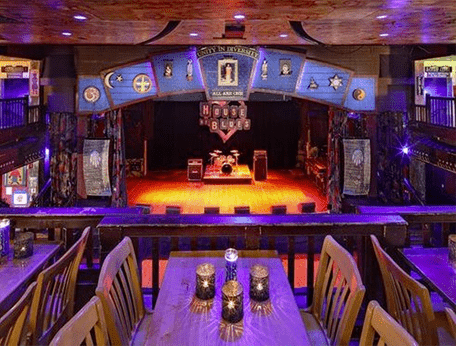
NEXT STEPS
We are a non profit driving our mission from the power of a vision and a team of partners who care passionately about the needs of kids and teens in trouble. We believe that chaos and depravation have a way of replicating themselves. So, too, does healthy culture, a sustaining belief in oneself, and the life skills and leadership capacities necessary to make a place and a group of people thrive. We invite you into our family, our team, and our cause.







